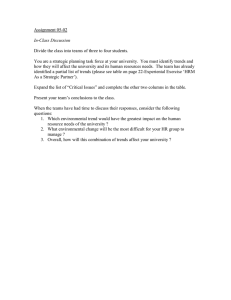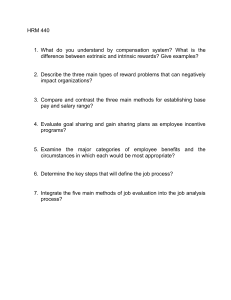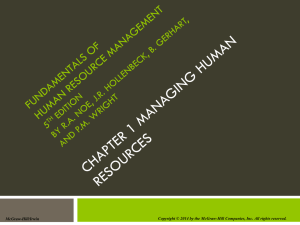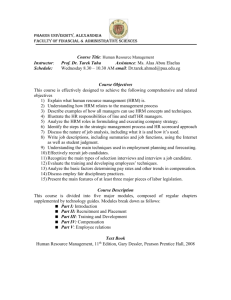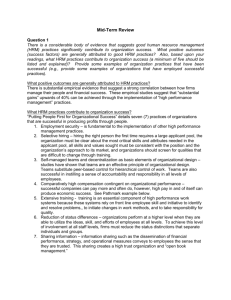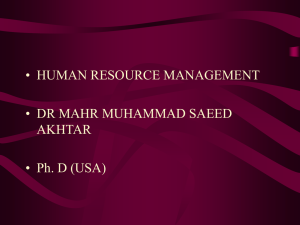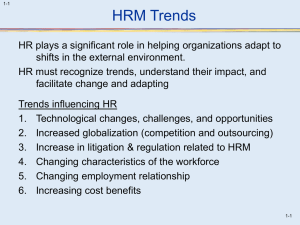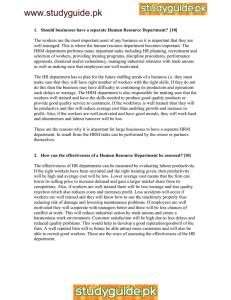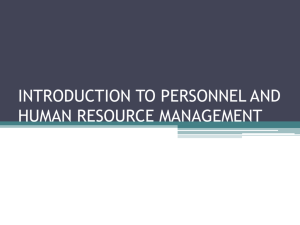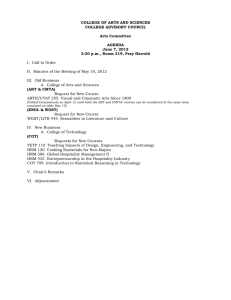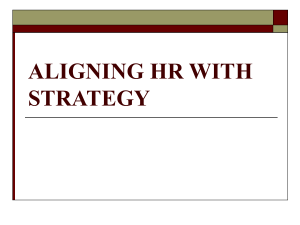PERSONNEL MANAGEMENT
advertisement
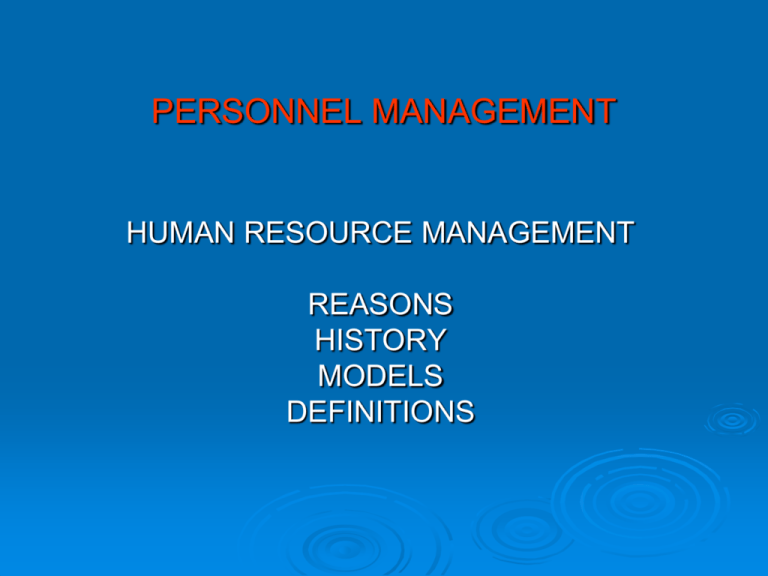
PERSONNEL MANAGEMENT HUMAN RESOURCE MANAGEMENT REASONS HISTORY MODELS DEFINITIONS „MAUT HALTEN UND WEITER DIENEN” („SHUT UP DO AS WAS TOLD.”) The motto of the prussian army‘s sergeant. „People become resources to be developed, rather than human beings who are valued in themselves and who are encouraged to choose and shape their own future.” Gareth Morgan „The assets make things possible The people make things happen.” THE STAGES OF THE DEVELOPMENT OF THE PERSONNEL POLICIES AGE OF SOCIAL REFORMERS (1800) AGE OF WELFARE (1880-1920) AGE OF PERSONNEL ADMINISTRATION (1920-40) AGE OF PERSONNEL MANAGEMENT (1951-80) AGE OF HUMAN RESOURCE MANAGEMENT (1980-1990) Definition: The profession of personnel management has its principal aim the task of ensuring the optimum use of human resources to the mutual benefit of the enterprise, each person and the community at large. Personnel management is concerned with: obtaining, developing and motivating the human resources required by the organization to achive its objectives, developing an organization structure and climate and evolving a management style which will promote co-operation and commitment thorughout the organization, Making the best use of the skills and capacities of all those employed in the organization, Ensuring that the organization meets its social and legal responsibilities towards its employees, with particulare regard to the condition of employment and quality of working life provided for them. The HRM policy goals Strategic integration is concerned with fully integrating HRM into strategic planning, with developing coherent policies throughout the organization. Commitment is concerned with binding employees to the organization and getting them dedicate their efforts to high performance Flexibility is concerned with developing an organization structure which is adaptive and receptive to innovation Quality is concerned with obtaining and developing the high quality of staff required to produce high quality goods and services The human resource management – a new approach Strategic approach The strategic approach to personnel links it firmly to the long-term strategies of the organization and ensures that personnel staff provide the quidance and expert support needed to accomplish the strategies System approach The system approach recognizes that personnel management policies and procedures have to take account of the fact the organization is an open system in which social and technological processes must be combined in oder to convert inputs into outputs within the organization‘s external environment. Contingency approach The contingency approach to personnel management is function of the strategic and system approaches and based on continquency theory. It means that all personell policies and activities will be dependent on the situation in which the organization operates. Social responsibility approach The social responsibility approach means a social obligation, beyond that required by the law and economics, for a firm to persue long-term goals that are good for society Definiton: The HRM is a strategic approach to acquiring, developing, managing, motivating and gaining the commitment of the organization‘s key resource – the people who work in and for it.
